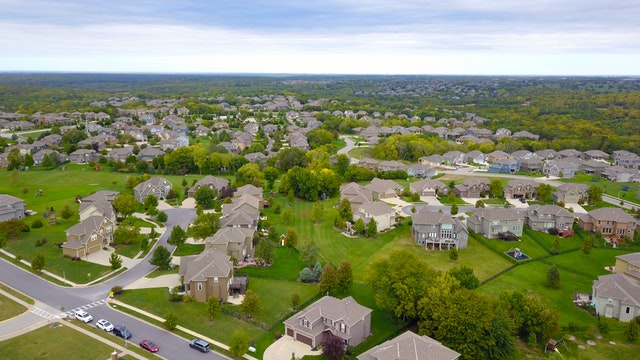 When someone purchases their first home, this is a significant step. There are a number of issues that people need to think about because purchasing a home is typically someone’s most significant investment.
When someone purchases their first home, this is a significant step. There are a number of issues that people need to think about because purchasing a home is typically someone’s most significant investment.
With this in mind, there are three common traps that first-time homebuyers often fall into. Fortunately, there are ways to avoid these traps as well.
Looking At Homes Before Applying For A Mortgage
Perhaps the biggest mistake that people make is that they look for homes before they apply for a mortgage. Without a successful mortgage application, it will be difficult to find a home at all. Of course, people enjoy looking at homes because it puts their future into perspective. At the same time, it is important to have an idea of how much home someone can afford. This will be difficult to do without knowing how large of a mortgage someone will be approved for. Apply for a mortgage before looking at homes.
Draining The Savings Account
Most people will want to put down some sort of a down payment. After all, this can help one get a lower interest rate on their mortgage. At the same time, don’t think about the down payment as simply a number in the savings account. Calculate how much of a down payment is truly necessary. People shouldn’t have to drain their entire savings account for the down payment. This money might be needed for closing costs, home repairs, and other potential emergencies.
Not Working With Trusted Professionals
The internet has provided people with instant access to vast amounts of information. This has the benefit of allowing the new home buyer to educate themselves and do research on homes to purchase, mortgage financing options and a lot of other home buying topics. However, the internet can also provide incorrect information or only partial information.
That’s why it’s so important to work with trusted real estate and mortgage professionals who have your best interest in mind. Feel free to ask them a lot of questions and get specific answers about your personal financial situation and home purchasing needs. They are trained and have years of experience making sure that you get the best combination of things to serve your needs.
Purchasing A Home
These are a few of the most important issues that every first-time homebuyer should think about. It can make a significant difference in someone’s financial future. Pay attention to these and reach out to your local network of trusted professionals today!
 It is important for everyone to diversify their investments and one of the assets that people often look toward is real estate. In a healthy market, real estate should appreciate in value.
It is important for everyone to diversify their investments and one of the assets that people often look toward is real estate. In a healthy market, real estate should appreciate in value. College is expensive and everyone needs to think about how they are going to cover the costs. Some of the costs include tuition, room and board, meals, books, and spending money.
College is expensive and everyone needs to think about how they are going to cover the costs. Some of the costs include tuition, room and board, meals, books, and spending money. Last week’s economic reports included readings on inflation and retail sales; the Federal Reserve released its post-meeting statement from its Federal Open Market Committee. Weekly readings on mortgage rates and new jobless claims were also released.
Last week’s economic reports included readings on inflation and retail sales; the Federal Reserve released its post-meeting statement from its Federal Open Market Committee. Weekly readings on mortgage rates and new jobless claims were also released. Have you ever seen a scientific experiment with things growing in a Petri dish? This is a metaphor for how neighborhoods grow as well. Things in a Petri dish grow towards the areas that have more nutrition to attract them and repel from areas that have bad things that they do not want.
Have you ever seen a scientific experiment with things growing in a Petri dish? This is a metaphor for how neighborhoods grow as well. Things in a Petri dish grow towards the areas that have more nutrition to attract them and repel from areas that have bad things that they do not want. The Federal Open Market Committee of the Federal Reserve announced its unanimous decision not to change to the current target federal funds range of 1.50 to 1.75 percent. The committee’s customary post-meeting statement said the decision not to change the Fed’s target range for federal funds was based on factors including a strong labor market, moderate economic growth, continued job growth, and low unemployment.
The Federal Open Market Committee of the Federal Reserve announced its unanimous decision not to change to the current target federal funds range of 1.50 to 1.75 percent. The committee’s customary post-meeting statement said the decision not to change the Fed’s target range for federal funds was based on factors including a strong labor market, moderate economic growth, continued job growth, and low unemployment. “Baby Boomers,” defined as people who were born between 1946-1964, are the wealthiest generation to ever retire, as well as the largest. According to U.S. Census Bureau projections, the population of people 65 and older will increase by 36% between 2013-2023 and is expected to outnumber children by 2034 — for the first time in U.S. history.
“Baby Boomers,” defined as people who were born between 1946-1964, are the wealthiest generation to ever retire, as well as the largest. According to U.S. Census Bureau projections, the population of people 65 and older will increase by 36% between 2013-2023 and is expected to outnumber children by 2034 — for the first time in U.S. history. A “seller’s market” happens when there are more potential buyers than homes for sale. In a seller’s market, people looking for a home may feel frustration and not easily find the home that they want. When they find a home for sale that they like, the seller of the home may receive multiple competitive offers at the same moment.
A “seller’s market” happens when there are more potential buyers than homes for sale. In a seller’s market, people looking for a home may feel frustration and not easily find the home that they want. When they find a home for sale that they like, the seller of the home may receive multiple competitive offers at the same moment. Last week’s economic reports included readings on construction spending and multiple labor sector reports including private and public sector jobs and the national unemployment rate. Weekly reports on average mortgage rates and first-time jobless claims were also released.
Last week’s economic reports included readings on construction spending and multiple labor sector reports including private and public sector jobs and the national unemployment rate. Weekly reports on average mortgage rates and first-time jobless claims were also released. There are a lot of steps that people need to take when buying a home. One of the most common issues that people discuss is the down payment. Most banks will require a down payment so that they aren’t the only ones taking on the risk of buying a home. The common question people have is how much of a down payment they should apply.
There are a lot of steps that people need to take when buying a home. One of the most common issues that people discuss is the down payment. Most banks will require a down payment so that they aren’t the only ones taking on the risk of buying a home. The common question people have is how much of a down payment they should apply.